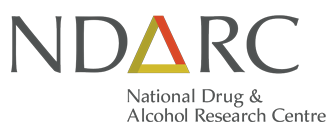
This blog post was written by NDARC Research Fellow Dr Duong (Danielle) Tran and was originally published as an opinion article in 6minutes.
"Nearly one in 10 pregnant women smoke, yet question marks over the safety of smoking cessation medications for unborn babies have reduced the options GPs can suggest to help them quit.
Medications, including nicotine replacement therapy (NRT), varenicline (Champix) and bupropion (Zyban) are effective tools to help people quit.
But due to a lack of clear evidence for their safety in pregnant women, many clinical guidelines have advised caution when using NRT and have recommended against varenicline or bupropion altogether.
One key question is whether these medications increase the risk of major congenital malformations.
To answer this, our research team analysed data from more than five million births across Australia, New Zealand, Norway and Sweden over a 20-year period.
We focused on around 13,000 newborns who had been exposed to these medications during pregnancy — 9300 whose mothers used NRT, 3000 with varenicline exposure, and 1000 exposed to bupropion.
We then compared their risk of major congenital malformations to that among babies born to mothers who smoked but did not use these quit-smoking aids.
The bottom line? Our findings provided strong reassurance.
We found no evidence of a higher risk of major congenital malformations from the use of these smoking cessation medications during pregnancy.
For infants exposed to NRT, the rate of any type of major congenital malformations was 3.76% compared with 3.44% among unexposed infants — a statistically negligible difference of just 0.32%.
When examining malformations affecting the heart, limbs, genital organs, kidney and urinary tract, respiratory system, digestive systems or facial and lip clefts, the study found no evidence of an increased risk for any of these conditions.
Likewise, when focusing on women who used varenicline during pregnancy, our study showed no difference in the rate at which their babies had any type of major congenital malformation (3.27% vs 3.66%) or malformations in the heart, limbs, genital organs, or kidney and urinary tract.
A similar finding emerged when looking at bupropion use, 3.55% of babies with bupropion exposure had any major congenital malformation versus 3.88%.
The numbers of bupropion-exposed babies were not big enough for us to examine the risk of specific malformations.
Our study is the largest of its kind to date and provides high-quality evidence on the safety of quit-smoking medications in pregnancy, made possible through international collaboration and innovative analysis of real-world data.
Pregnant women are typically excluded from clinical trials due to medicolegal, ethical and other reasons.
Therefore, observational studies like ours are essential for addressing critical knowledge gaps and guiding healthcare decisions.
Our results should reassure pregnant women considering quit-smoking medications.
It provides evidence to inform discussions between GPs and their patients about the benefits and risks of these quit-smoking therapies, while supporting women to make confident and informed choices about quitting during pregnancy."




